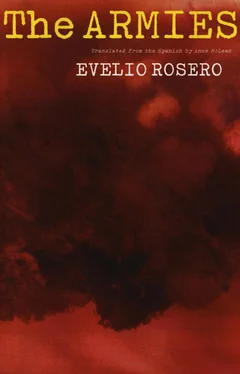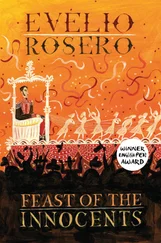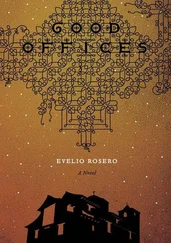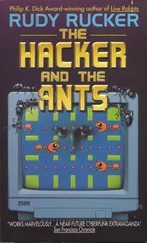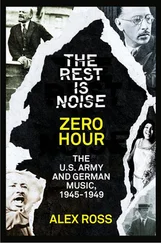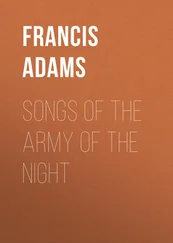“Profesor ,” another decides. “You’re on the list. They’re searching for you. Better come with us, and keep quiet.”
It is a surprise. They are searching for me. I look at the one who has spoken: one of Celmiro’s sons.
“What about your father?” I ask him. “You left him?”
“He didn’t want to come, profesor . We wanted to carry him, but he said he would rather die where he was born, rather than die somewhere else.”
And he looks me in the eye, without blinking. His voice falters.
“If he told you that his children were wretches, it’s not true; he likes to complain. Go and see, profesor . The house is open. He wouldn’t let us carry him.”
Who to believe?
Including Celmiro’s son, there are just three inhabitants of this town who are still standing by me. But they begin to rush me, irritated.
“Come with us, profesor . Don’t be stubborn.”
“How?” I say, and show them my swollen knee. “Even if I wanted to I could not.”
Celmiro’s son shrugs and jogs away after the group. The other two sigh, shake their heads.
“They’ll soon turn up, profesor . Don’t you tell them who you are. Nobody’s going to recognize you.”
“What about Chepe?” I say. “What happened in the end? I did not see what happened to him.”
“We never saw him.”
“Who is going to bury the dead? Who buried Chepe?”
“None of us buried him.”
And I hear one of them say, ironically. “It must have been one of them.”
“The one who killed him, most likely.”
They regret saying it, or feel sorry for me, from the expression I must have on my face, while listening to them.
“We’re going, profesor , we don’t want to die. What can we do? They ordered us to leave, and we have to leave, as simple as that.”
“Come with us, profesor . You’re on the list. We heard your name. Be careful. Your name was there.”
Why do they ask for names? They kill whoever they please, no matter what their names might be. I would like to know what is written on the paper with the names, that “list.” It is a blank sheet of paper, for God’s sake. A paper where all the names they want can fit.
A sound of voices and breathing wells up from one side of the school, from the dense bank that adjoins the trees, the mountains, the immensity, wells up from the narrow path that comes down from the mountain range: more sweating men and women are arriving to join the line, I hear their voices, they talk and tremble, complain, lament,
“They’re killing people like flies,” they say, as if we did not know.
In vain I look for Rodrigo Pinto and his wife and their children. In vain I search for Rodrigo and his dream, his mountain. I ask after him: one of his neighbors shakes his head, and does not do so sadly, as I would have expected. On the contrary, he seems about to tell a joke: he tells me he saw his hat floating in the river, and keeps walking along with the rest, ignoring further questions. “And Rodrigo’s wife, his children?” I insist, limping after them.
“There were seven,” he yells, without turning around.
I see them disappear around the first bend in the road. They are leaving, I am staying, is there really any difference? They will go somewhere, to a place that is not theirs, that will never be theirs, like what is happening to me, staying in a place which is no longer mine: here dusk or night might begin to fall or dawn to break without my knowing, is it that I no longer remember the time? My days in San José, when I am the only one in its streets, will be hopeless.
If I could at least come across Celmiro’s window again, we could keep each other company, but where? I no longer know. I examine the corners, the façades: I catch sight of the Survivors, coming around the gutter on the roof of a house, one beside the other, above me, keeping pace with me, and observing me in turn, their eyes filled with curiosity, as if they recognized me too.
“Oh, to be a cat, God, just a cat up there on the roof,” I say to them. “They’ll surely shoot at me before they shoot at you two.”
They listen to me and disappear, as swiftly as they appeared, were they following me?
From the trees a cluster of birds takes flight, after a series of bursts of gunfire, still distant. Far away, another group of stragglers, men and women, rush along the road: it looks as if they are fleeing on tiptoe, trying not to make any noise, with voluntary, disproportionate stealth. Some of the women point to me, terrified, as if commenting to each other on the presence of a ghost. I have sat down on a flat, white rock, under a fragrant magnolia tree; I do not remember this rock either, or this magnolia, when did they appear? With every reason I do not know this street, these corners, things, I have lost my memory, just as if I were sinking and I began to walk one by one down steps which lead to the most unknown, this town, I shall stay alone, I suppose, but in some way I shall make this town my home, and I shall stroll through you, town, until Otilia comes for me.
I shall eat what they have left in their kitchens, I shall sleep in all their beds, I shall recognize their stories by their vestiges, guessing at their lives from the clothes they left behind, my time shall be another time, I shall amuse myself, I am not blind, I shall cure my knee, I shall walk up to the high plateau as a stroll and then return, my cats will continue to feed me, if weeping is all that is left, let it be out of happiness; am I going to cry? No, just burst out laughing with all the unpredictable laughter I have been holding back all this time, and I am going to laugh because I have just seen my daughter, beside me, you have sat down on this rock, I tell her, I hope you understand all the horror that I am, inside, “or all the love”—this last I say out loud, laughing — I hope you are drawing near in sympathy with me, that you forgive the only one guilty of the disappearance of your mother, because I left her on her own.
Now I see Otilia in front of me.
And with her some children who must be my grandchildren and who look at me appalled, all holding hands.
“Are you real?” I ask them. This is all I could ask them.
Hey’s shout replies, fleeting, unexpected. The vision of Otilia vanishes, leaving a bitter trace on my tongue, as if I had just swallowed something truly bitter, the laughter, my laughter.
I stand up. I shall walk to my house. If this town has gone, my house has not. I am going there, I say, I shall go, though I may be lost.
Two or three streets away from the white rock, from which I should perhaps never have moved, I meet the same men who know I am not dead, I meet them in the middle of the street, before a house with geraniums growing by the door, whose house? List in hand they call someone at the tops of their voices, a name I do not recognize, mine? I carry on walking toward them, and realize my stupidity too late, when it would be more than reckless to turn back; but they do not give me a second glance; I see from where I am that the door to the house is open. With a last effort I make for the opposite pavement, against the wall, under the shadows of a row of overturned tables: Chepe’s place, again.
They keep shouting the name, the door remains open, nobody comes out, nobody obeys the name, the fatal order. One of the armed men walks over and unnecessarily kicks in the door, smashes it with the butt of his rifle; he goes inside followed by two or three others. They drag out a man I do not recognize, they repeat his name, who? Am I forgetting even the names? It is a young man with a moustache, more frightened than I am, pale, they leave him sitting in the street, the wind moves his shirt tails strangely — separate animals, waving goodbye — they yell something at him that I do not understand because behind it comes a woman’s scream bursting out of the house, an old woman comes out, Otilia’s age, I must know who she is, his mother? Yes, his mother comes out after him, berating the henchmen.
Читать дальше
